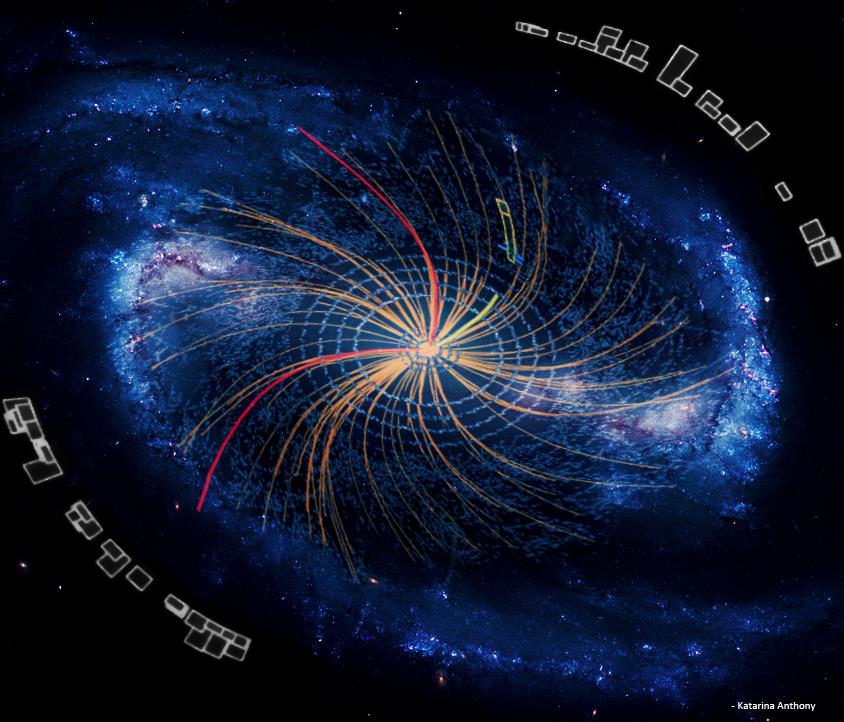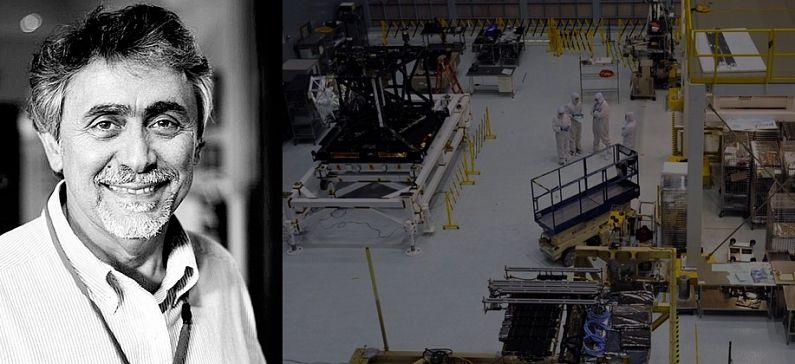Public Lecture Series – Spring 2019

Public Lecture | Cosmological Inflation, the Multiverse, and more: Views of a Skeptic
Tuesday April 16th at 7PM
Please join us for a public talk describing the basics of Cosmology and the role of Inflation in the Early Universe, as well as the fascinating open problems in the study of Cosmology which are now the subject of current research. Many people are aware that the Universe is expanding, and may have heard of the searches for ‘Dark Energy’ and ‘Dark Matter’. In this talk, Dr. Demos Kazanas will present a basic overview of standard (Newtonian) cosmology, the problems of initial conditions, including Horizons and flatness and how Inflation provides a resolution. The cost of this approach is that of the Multiverse, an infinite set of independent universe islands like the one we perceive. Dr. Kazanas will discuss his personal take on the resolution to these problems.
The event is free and open to the public. There will be time after the lecture (of about 1 hour) for Q&A with the speaker. The event will be held in room 401 on the fourth floor of the Physics Building. A campus map is here, and a google map in which you can input your address for directions is here. Visitor Parking is available in the Commons Garage.

About the Speaker: Demosthenes Kazanas is an astrophysicist researcher working at NASA’s Goddard Space Flight Center. In 1980s, he was one of the first people to mention the idea of cosmological inflation, a theory of the exponential expansion of space in the early universe. Recently, he was part of a research that discovered the magnetic origin of black hole winds across the mass scale. Dr. Kazanas was born in 1950 in Kavala, Greece. He completed his B.Sc. at Aristotle University of Thessaloniki in 1973 and then his M.S. and his Ph.D.at the University of Chicago in 1975 and 1978 respectively. Dr. Kazanas is currently a senior researcher at NASA’s Goddard Space Flight Center. His research areas are High Energy Astrophysics (The physics of compact accreting sources), the Gravitational Collapse (effects of neutrinos in gravitational collapse) and Alternative Gravitational Theories (Conformal gravity and astrophysical applications in galactic rotation curves).
Public Lecture Series – Spring 2018

Colliding Black Holes and Ripples in SpaceTime: The incredible new results from the LIGO experiment
Wednesday evenings from 7-8 PM: March 28th, April 4th, April 11th, and April 18th
Please join us for a series of lectures on gravitational waves and the remarkable recent observations of the groundbreaking LIGO experiment, which has detected the infinitesimally small ripples in spacetime caused by the convergence of two black holes (and even more recently, two neutron stars). The lectures will be given at the level of the general public (no physics background is assumed), though they will also be illuminating for students of physics, astronomy, engineering or simply those interested in the progress of science.
The event is free and open to the public, though we do ask that you register at this link if possible so that we can anticipate the number of participants. There will be time after the lecture for Q&A with the speaker. The event will be held in the main physics lecture hall on the first floor of the Physics Building. A campus map is here, and a google map in which you can input your address for directions is here. Visitor Parking is available in the Commons Garage.
| March 28th: | “A Few Words on General Relativity” What are gravitational Waves? Early Experiments on GW detection |
| April 4th: | “The History of LIGO” How LIGO Works |
| April 11th: | “Initial LIGO and Advanced LIGO” What LIGO and sister detector VIRGO have observed |
| April 18th: | “Beyond LIGO” Planned Improvements Other new GW detectors |

About the Speaker: Dr. Carruthers spent eight years overseeing the operation of the Laser Interferometer Gravitational-wave Observatory (LIGO) and the construction of its major upgrade, Advanced LIGO, as a Program Director for the National Science Foundation. Previously he was a research physicist at the US Naval Research Laboratory, where he studied lasers, fiber optics, and precision optical metrology for nearly 30 years. He has been a longtime collaborator with the Computational Photonics Laboratory in the Computer Science and Electrical Engineering Department at UMBC, where he now serves. He is a senior member of the LIGO Scientific Collaboration.
Click this link for more information about LIGO.